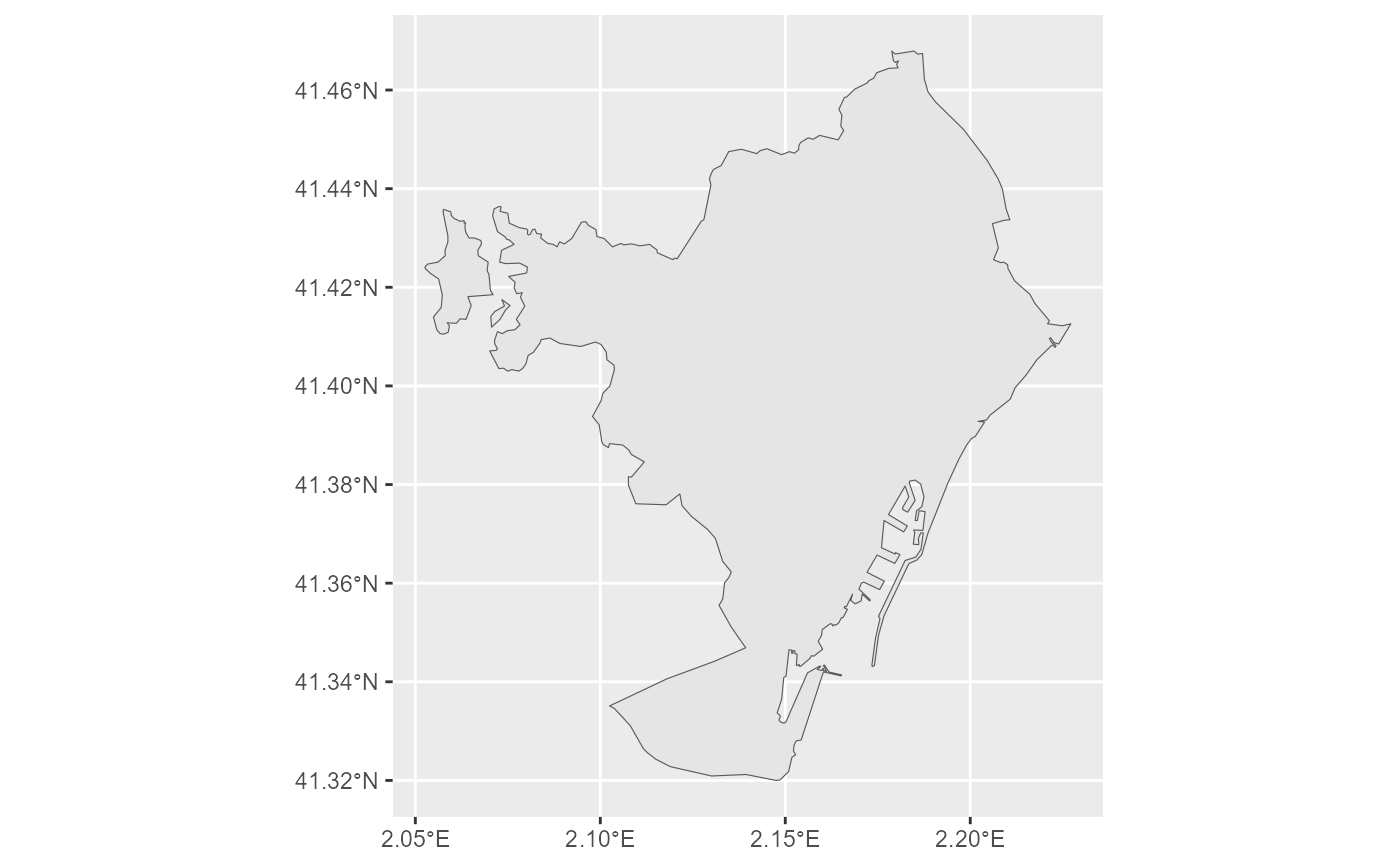The dataset contains the boundaries of cities ("CITIES"), greater cities
("GREATER_CITIES") and functional urban areas ("FUA") as defined
according to the EC-OECD city definition. This is used for the Eurostat Urban
Audit data collection.
Please note that this function gets data from the aggregated GISCO
Urban Audit file. If you prefer to download individual urban audit files,
please use gisco_get_unit_urban_audit().
Source
https://gisco-services.ec.europa.eu/distribution/v2/.
Copyright: https://ec.europa.eu/eurostat/web/gisco/geodata/administrative-units.
Arguments
- year
character string or number. Release year of the file. One of
"2024","2021","2020","2018","2014","2004","2001".- epsg
character string or number. Projection of the map: 4-digit EPSG code. One of:
"4326": WGS84."3035": ETRS89 / ETRS-LAEA."3857": Pseudo-Mercator.
- cache
logical. Whether to do caching. Default is
TRUE. See Caching strategies section ingisco_set_cache_dir().- update_cache
logical. Should the cached file be refreshed? Default is
FALSE. When set toTRUEit would force a new download.- cache_dir
character string. A path to a cache directory. See Caching strategies section in
gisco_set_cache_dir().- verbose
logical. If
TRUEdisplays informational messages.- spatialtype
character string. Type of geometry to be returned. Options available are:
"RG": Regions -MULTIPOLYGON/POLYGONobject."LB": Labels -POINTobject.
- country
character vector of country codes. It could be either a vector of country names, a vector of ISO3 country codes or a vector of Eurostat country codes. See also
countrycode::countrycode().- level
character string. Level of Urban Audit. Possible values
"all"(the default), that would download the full dataset or"CITIES","FUA", and (for versions prior toyear = 2020)"GREATER_CITIES","CITY","KERN"or"LUZ".- ext
character. Extension of the file (default
"gpkg"). One of"shp","gpkg","geojson".
Value
A sf object.
Details
See more in Eurostat - Statistics Explained.
The cities are defined at several conceptual levels:
The core city (
"CITIES"), using an administrative definition.The Functional Urban Area/Large Urban Zone (
"FUA"), approximating the functional urban region. The coverage is the EU plus Iceland, Norway and Switzerland . The dataset includes polygon features, point features and a related attribute table which can be joined on the URAU code field.
The "URAU_CATG" field defines the Urban Audit category:
"C"= City."F"= Functional Urban Area Service Type.
Note
Please check the download and usage provisions on gisco_attributions().
See also
See gisco_bulk_download() to perform a bulk download of datasets.
See gisco_get_unit_urban_audit() to download single files.
Other statistical units datasets:
gisco_get_census(),
gisco_get_coastal_lines(),
gisco_get_lau(),
gisco_get_nuts()

